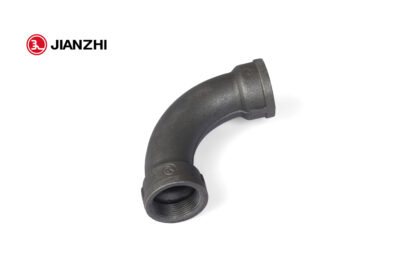Yellow brass pipe fittings are commonly used in plumbing systems, but they can cause several types of damages if not properly installed, maintained, or replaced when necessary.
Here are some potential damages that can be caused by yellow brass pipe fittings:
Corrosion: Yellow brass is susceptible to corrosion, especially in environments with high acidity or alkalinity levels. Corrosion can lead to leaks, water damage, and even contamination of drinking water.
Cracking: Yellow brass pipe fittings can crack if they are subjected to excessive stress or pressure. Cracks can cause leaks, which can lead to water damage and mold growth.
Blockages: Over time, yellow brass pipe fittings can become blocked with sediment, scale, or other debris. Blockages can cause reduced water flow, water pressure, and even burst pipes.
Leaks: Poor installation or worn-out yellow brass pipe fittings can develop leaks, which can cause water damage to walls, ceilings, and floors. Leaks can also lead to mold growth and pose a health hazard.
Reduced water quality: As yellow brass pipe fittings corrode, they can release lead and other harmful metals into the water supply, wholesale pipe fittings reducing water quality and posing a health risk.
To avoid these potential damages, it’s important to work with a licensed plumber who can properly install, maintain, and replace yellow brass pipe fittings as needed. It’s also a good idea to periodically test your water quality and inspect your plumbing system for signs of corrosion, leaks, or blockages.
What are some signs of corrosion in plumbing systems?
Corrosion is a common problem in plumbing systems, and it can cause a range of issues such as leaks, reduced water pressure, and water discoloration.
Here are some signs of corrosion in plumbing systems:
Discolored water: Corrosion can cause the water to become discolored, usually with a brown or reddish tint. This is caused by rust particles that have accumulated in the pipes.
Reduced water pressure: Corrosion can cause the pipes to become clogged with rust and other debris, which can reduce the water pressure in your home.
Leaks: Corrosion can weaken the pipes, causing them to develop leaks over time. If you notice water stains on walls or ceilings or hear dripping sounds, it could be a sign of a leak.
Unpleasant odor or taste: Corrosion can also cause the water to have an unpleasant odor or taste, especially if there is a buildup of rust or other debris in the pipes.
Visible damage: In severe cases, corrosion can cause visible damage to the pipes, such as cracks or holes. If you notice any visible damage, it’s best to call a plumber to assess the situation.
If you suspect that your plumbing system is experiencing corrosion, it’s important to call a licensed plumber as soon as possible. They can assess the situation, identify the source of the corrosion, and recommend the best course of action to repair or replace the affected pipes.
